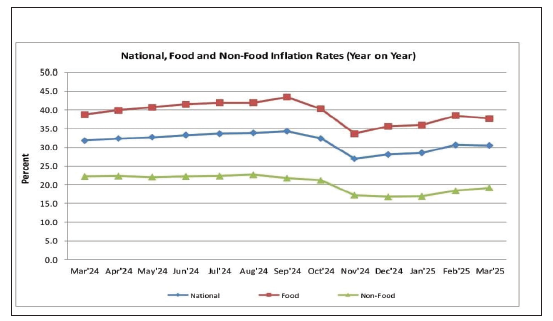In a move that appears to address critical concerns raised by the Malawi Confederation of Chambers of Commerce and Industry (MCCCI), the Reserve Bank of Malawi (RBM) has revised key export and import measures.
This response, announced through a March 25, 2025, letter from RBM Governor MacDonald Mafuta Mwale to the Bankers Association of Malawi, is aimed at promoting import substitution, incentivizing exports, and curbing reliance on informal financial channels for imports.
The adjustments include reducing the mandatory conversion ratio on export proceeds from 30 percent to 25 percent for exporters, lowering the compulsory conversion rate for NGOs from 70 percent to 50 percent, and introducing a Telegraphic Transfer (TT) verification requirement to ensure imports are financed through formal banking channels.

The MCCCI, in its earlier position paper, had highlighted persistent forex challenges affecting the private sector. The chamber expressed concerns about the Foreign Exchange Control (2024) regulation, warning that it might inadvertently escalate parallel trading, hike up forex rates, and increase production costs, leading to price instability for essential goods and services.
MCCCI advocated for policy reforms focused on export diversification and boosting local production to reduce reliance on imports. The chamber also stressed the importance of maintaining RBM’s regulatory role while enabling commercial banks to allocate foreign exchange effectively to productive sectors that fuel economic growth.
RBM’s revised measures align partially with MCCCI’s call for policies supporting export growth and import substitution. By lowering mandatory conversion ratios, the central bank seems to acknowledge the need to ease pressure on exporters and NGOs, potentially fostering better forex retention within the private sector. Additionally, the TT verification requirement addresses MCCCI’s concerns about informal forex channels by ensuring greater transparency in import financing.
However, questions linger about the broader impact of these measures. While they address some issues raised by MCCCI, the extent to which they will mitigate forex scarcity or unintended consequences like parallel trading remains unclear. MCCCI has reiterated that sustainable economic growth hinges on empowering the private sector and prioritizing productive sector forex allocation to ensure long-term stability.
As the dust settles, the interaction between RBM’s policy adjustments and MCCCI’s recommendations underscores the importance of collaboration between key stakeholders. Balancing regulatory measures with economic incentives is essential for achieving lasting forex stability and fostering growth in Malawi’s private sector.




